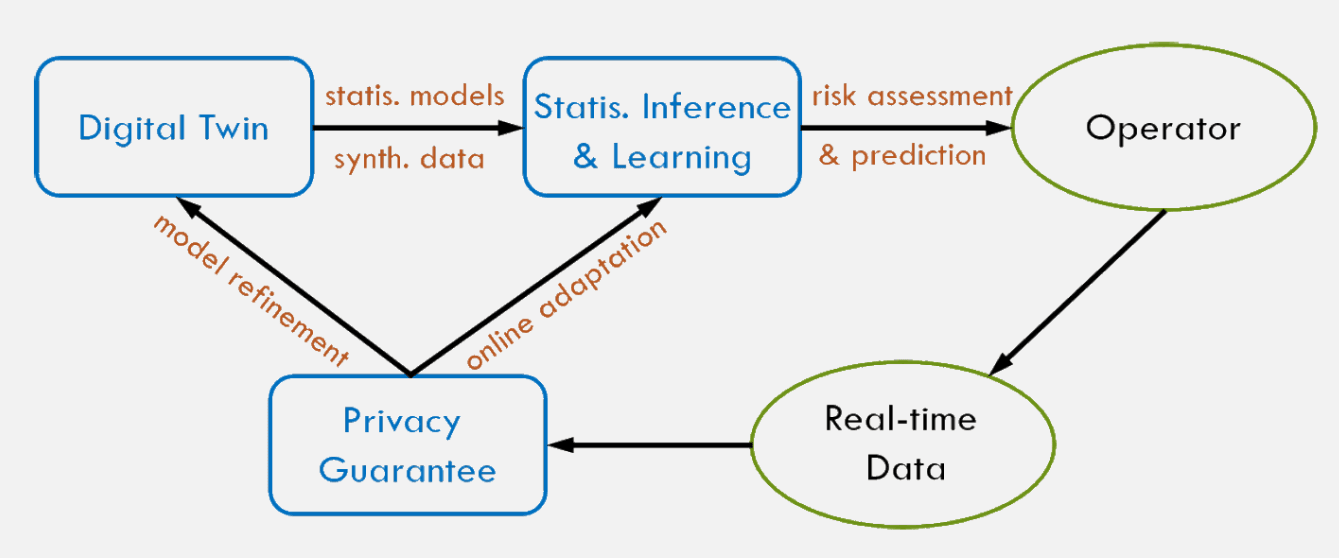
>_
Description
BACKGROUND
The food processing industry has a long-standing need for food-safety data analytics to aid rapid and reliable decision making. A major food safety concern is Listeria monocytogenes, a foodborne pathogen with a case fatality rate of 20% and more than $4 billion in annual costs to American consumers and food companies. Science-based Listeria environmental monitoring programs in food processing facilities are a key tool to reduce the risk of food contamination. The key challenge is the high cost and risk involved in Listeria testing and experimentation. Decision making in existing Listeria control programs are typically based on sparse data and human intuitive judgment, resulting in highly suboptimal solutions, especially in complex situations and under stress. While there is considerable interest in the food industry for agent-based simulation models to aid decision making, there are challenges that prevent their full utilization.
GOALS
- Build digital-twin models of processing facilities, utilizing pre-existing industry datasets and developing the ability of integrating diverse streams of data for improved model parameterization.
- Develop statistical learning and inference algorithms for rapid and reliable pathogen detection and risk-averse prediction of effective corrective measures, by integrating synthesized data from the digital-twin models with the facility-owned data.
- Address practical constraints, in particular, privacy constraints to incentivize data sharing and improve human trust, as well as resource constraints in terms of computation and memory complexity.
IMPACT
- Allow operators to receive streamlined information (e.g., in real-time) with the capacity to rapidly identify key factors or sites at risk, ultimately improving food-safety related decision-making and resulting in more cost- effective pathogen control programs.
- Extend the data analytics proposed here using Listeria monocytogenes models to decision support tools for other pathogens affecting the food production, including the spread of COVID-19 among workers in the food industry.
>_
Photos
>_
Team

Jayadev Acharya
Principal Investigator

Renata Ivanek
Co Principal Investigator

Martin Wiedmann
Co Principal Investigator

Qing Zhao
Co Principal Investigator

Tarek Zohdi
Co Principal Investigator

Nitin Nitin
Co Principal Investigator
>_
Publications

Distributed Estimation with Multiple Samples Per User: Sharp Rates and Phase Transition

An Order-Optimal Adaptive Test Plan for Noisy Group Testing Under Unknown Noise

In Silico Models for Design and Optimization of Science-Based Listeria Environmental Monitoring Programs in Fresh-Cut Produce Facilities

Using Agent-based Modeling to Compare Corrective Actions for Listeria Contamination in Produce Packinghouses

